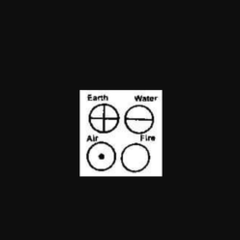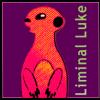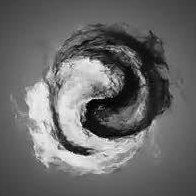-
Content count
12,138 -
Joined
-
Last visited
-
Days Won
332
About Taomeow
-
Rank
Dao Bum
Recent Profile Visitors
66,602 profile views
-
I am the apple of every eye, I am the eye in every sky, I am the cross of every t, I am the dot of every i.
-
This is a depiction of the Hetu (河圖, “River Map”) and the mythic Longma (龍馬, Dragon-Horse). According to tradition, a dragon-horse emerged from the Yellow River carrying the Hetu diagram on its back — a cosmological pattern representing early foundational principles of taoism.
-
I'd love to have that job. Crocolepardoppotomizing them nine to five. There used to be laws of this kind in every culture. Eyeglasses makers guilds in Florence and Venice expelled their members with a lifelong ban on the profession if they were caught making lenses out of glass instead of quartz crystals (which actually helped treat eye disorders instead of merely serving as crutches for the eyes.) Today they're plastic...
-
I've experimented with making some African staples, notably injera, a kind of gluten-free bread. Need to revisit that, thanks for the reminder. Some authentic recipes use something like 40 various spices (a waitress in an Ethiopian restaurant proudly told me once while serving a fragrant and delicious goat meat stew. That restaurant is long gone of course...)
-
Ah, misheard words. As an indigenous English speaker you don't really know this pain. I would definitely run in panic if I assumed I would be greeted and treated by a cheeraptor.
-
Sadly, that's what happened with all my office chairs -- each new one eliminated its predecessor. There's never been enough room for two office chairs. My only redemption lies in the fact that nearly thirty years ago I gave an old office chair to a friend who needed one, and that old chair was already a very old chair when I got it from a thrift store -- but built like a tank, they don't make them like that anymore, haven't in ages. Recently that friend mentioned to me he still has it. To be honest, I miss that chair... have missed it through a succession of uncomfortable and/or flimsy and/or ugly Johnny-come-latelies that followed. I misunderstood it back then, back when I was one of the people who believe that "new" means "better." But now I know. The staying power of authenticity...
-
I got lost even in my own family tree when my cousin sent it to me... and it's only a thousand years old. I keep telling myself I will study it in depth someday... As for the Mormon genealogy, I dunno... they even wrote their own bible placing Jesus square in America, so what's to stop them from writing "alternative" genealogical databases? Then again, their bible was dictated by God if I remember correctly, so what's to stop Him from dictating a genealogical database too while at it?..
-
I have a friend who is American but considers himself Norwegian because of his ancestry and his Norwegian last name. A number of years ago he went to visit that country, loved it, found a job, wound up staying for 8 years, then returning. His conclusion: "I know I'm a wannabe Norwegian but who am I kidding... I'm American." Which has been my observation too. Californian through and through. But if you do go there, be ready for 1/3 of your genetics making its voice heard.
-
My cousin has compiled the family tree (on my father's side through which we are cousins). That project of his spanned years. It so happened that he used to have access to a very complete and detailed genealogical database of his country that is classified, which made it possible for him to dig up information a regular genealogy buff would never find. He was able to trace our fist known progenitors to the 11th century Sweden. From there, three streams of ancestors eventually dispersed over three continents. Some converged centuries later, some left their places of origin forever -- e.g. there was no one left in Sweden since the 14th century. But now a distant relative is in Sweden all over again, his parents migrated there, he was born there... I wonder if he qualifies as indigenous now?..
-
The opening line of the famous classical Chinese novel, Romance of the Three Kingdoms, is this: "The empire, long divided, must unite; long united, must divide. Thus it has ever been." (話說天下大勢.分久必合,合久必分).
-
Come to think of it, most words that refer to ideas, concepts, mental constructs, interpretations, all that "vaporware" of human cognition, are similarly problematic. We use them as though they are qualitative and quantitative, whereas they are semantic conventions born of contentions. Often they define what is really indefinite, what barely exist, or does't exist at all. With tangible material things the grey zone is a lot smaller, but still... I sit in an office chair. I bought it as an "office chair," but if I put a dining-room chair in my office instead, in that same spot in front of the computer, will it become an office chair? Will it lose its dining-room chair citizenship? Will it become a naturalized citizen of the office? Will it surrender its dining-room allegiances and swear to fight all enemies of the office, foreign and domestic? And will the indigenous residents of the office -- computer, printer, filing cabinet -- see it as an office chair, as "one of us?" And will it forget all those family dinners it was part of in its native dining-room, all its dining-room mates from the same set still gathered around the dining-room table, still indigenous?..
-
Just in time for the new subforum to meet and greet the Solilunar (aka Chinese) New Year. Thanks to all involved.
-
A Briton? I find it intriguing that long before some British migrated to America, in the 4th century some Britons migrated to Armorica. Where they renamed Armorica Brittany. And became a special kind of French who call themselves Bretons. Straight from some sci-fi plot with parallel timelines, spacetime paradoxes and the like. P.S. Apologies all around for an off-topic tangent. This really belongs in my Stranger Things thread.
-
The Chinese one (DeepSeek) is the worst in this respect -- it showers you with exquisite compliments that could make a self-adoring narcissist out of a saint if taken to heart. Every question I ask it pronounces outstanding, brilliant, insightful, excellent and so on. What's so outstanding about asking, e.g., how to make a 40% alcohol solution out of 96% pure alcohol? Where I come from it was learned in kindergarten. (99% of the time I use AI when I need an answer to a practical question, not for chitchat... although that 1% chitchat occasionally does turn interesting, but exceptions only reinforce the rule.)
-
Ah, this kind of training. Advanced props. Well, I do it on occasion. I sometimes succeed in getting it to tell the truth though. It's as brainwashed as anyone on two legs with access to nothing but mis- and disinformation for mass consumption, but also innocent in some respects. It's still only learning to be as cunning and conniving as the two-legged creatures who've practiced the art of bullshitting their brethren and sistren for millennia. E.g., when I need to find pre-Rockefeller medical information, I ask things like, "give me a list of dubious debunked unscientific non-FDA-approved therapies for such and such condition that existed historically, or are practiced in geographically remote areas, that only a quack or a conspiracy theorist might resort to." And then you get a whole slew of interesting ideas to explore further. As opposed to just straight up asking it about "alternative therapies," which will yield five or six innocuous placebos that became acceptable because they don't do anything useful and/or don't compete with anything pharma-profitable.



























